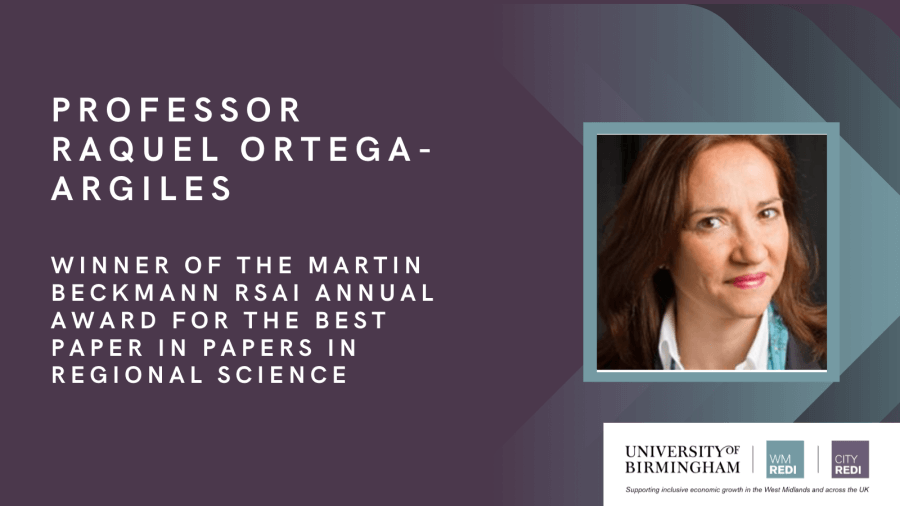 The Regional Science Association International (RSAI) has announced that this year’s Martin Beckmann RSAI Annual Award for the Best Paper published in Papers in Regional Science in the year 2020 has been given to the paper:
The Regional Science Association International (RSAI) has announced that this year’s Martin Beckmann RSAI Annual Award for the Best Paper published in Papers in Regional Science in the year 2020 has been given to the paper:
Optimizing entrepreneurial development processes for smart specialization in the European Union, by László Szerb, Raquel Ortega-Argilés, Zoltan J. Acs, and Éva Komlósi, published in Volume 99, Issue 5, October 2020, Pages 1413-1457.
The jury consisting of Janet Kohlhase, Dan Rickman and Jouke van Dijk consider that:
“Through an elegant scientific approach, the paper demonstrates how the Regional Entrepreneurship and Development Index (REDI) can be used to optimize local entrepreneurial discovery processes, in a manner which can support smart specialization strategies (S3). The analysis clearly demonstrates that without optimizing the entrepreneurial ecosystem, the industry specialization alone may not be successful because of the inability of the ecosystem to nurture high growth ventures. With its results, the paper strongly suggests that regional improvement can be achieved by reinforcing the weakest features of the local entrepreneurial ecosystem, an important suggestion for the successful implementation of a smart specialization strategy”.
In the paper, the authors show how the Regional Entrepreneurship and Development Index (REDI), a measure of the local entrepreneurship ecosystem, can help to identify the inhibitors to local entrepreneurial discovery processes, in a manner that can support Smart Specialization Strategies (S3) policy prioritisation (Foray et al, 2012; McCann and Ortega-Argiles, 2015 and 2016; Varga et al., 2020). Next, the authors explain the structure and the calculation methodology of the REDI that is a holistic measure of entrepreneurship ecosystems. They then discuss how the REDI could contribute to Smart Specialisation policy implementation by providing a solution to four S3 policy caveats as (1) measuring the necessary basic conditions for smart specialization in a mix of 125 NUTS 1 and NUTS2 European Union regions; (2) identifying the institutional and individual weaknesses at local levels; (3) providing a comprehensive view about the harmonization of the components of EE; and (4) presenting some simulations on how additional policy efforts could be optimized. REDI based suggestions are place-based and offer a rationale for tailor-made regional policy interventions. While Smart Specialisation industry prioritization is based on the identification of local strengths, REDI improvement can be achieved by improving the weak features of the entrepreneurial ecosystem. This tool can also be helpful in the design and implementation of the current UK’s local industrial strategies.
Read the full blog about the paper.
This is the second time that Professor Raquel Ortega-Argiles receives the Martin Beckmann’s RSAI award, previously granted to her in the year 2019 for the paper:
The continental divide? Economic exposure to Brexit in regions and countries on both sides of The Channel, by Wen Chen, Bart Los, Philip McCann, Raquel Ortega‐Argilés, Mark Thissen and Frank van Oort, published in Volume 97, Issue 1, Special Issue: The trade, geography and regional implications of Brexit, March 2018, Pages 25-54.
Disclaimer:
The views expressed in this analysis post are those of the authors and not necessarily those of City-REDI or the University of Birmingham.
